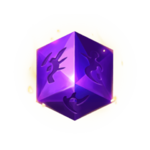Difference between revisions of "Folio on Nistra"
(Replaced content with "<div style="float: right">{{ {{{1|Tooltip hover box}}}|title= {{Book}}}}</div> {{quote}} ==Acquired From== {{Acquired from}} ==Book content== {{:Book data|{{ROOTPAGENAME}} Content}} ==See Also== * Books & Notes {{Item navbox}} Category:Books") Tag: Replaced |
Mindwitness (talk | contribs) (Added interesting facts) |
||
| Line 9: | Line 9: | ||
{{:Book data|{{ROOTPAGENAME}} Content}} | {{:Book data|{{ROOTPAGENAME}} Content}} | ||
==Interesting Facts== | |||
* The book's description seems to allude to the legend of Archimedes' murder by Roman soldiers, according to which his last words were "Nōlī turbāre circulōs meōs!" - "Do not disturb my circles!". | |||
==See Also== | ==See Also== | ||
Latest revision as of 12:21, 14 August 2024
| Folio on Nistra Written by Kreon the Younger |
| "A Complete Description of Nistrian Lands" Reading this book grants some Experience. |
| Kreon the Younger followed in his historian father's footsteps, leaving behind a vast legacy. Regrettably, his life was cut short too soon - during the Brynn siege, he was murdered by the Council soldiers for refusing to let them into his house. His last words were: "Not my manuscripts!". |
| “ | Kreon the Younger followed in his historian father's footsteps, leaving behind a vast legacy. Regrettably, his life was cut short too soon - during the Brynn siege, he was murdered by the Council soldiers for refusing to let them into his house. His last words were: "Not my manuscripts!". | „ |
Acquired From
Book content
The so-called Council of Peoples occupies a distinct place in the Nistrian way of life, perpetuating each of their individual nations' special rights and privileges.
The most numerous people are Chervenians. The language they speak is reminiscent of some of the dialects of distant Skadia, but unlike Skadians these men and women are significantly more jovial and easy-going. The majority of Chervenians are peasants and farmers. There are few of them among the nobility, so they often have to compete for influence with other peoples' much wealthier noble families.
Then there are Marrs, who were lucky enough to settle along the shores of the Southern Sea, making their residence in the coastal cities - that's their main difference from Chervenians, whom they share close similarities with. They often become merchants and all sorts of craftsmen - by law, Marrs are relieved of numerous taxes and fees, so plying these trades grants them plenty of opportunities for profit.
Zeineshes are a nation of warriors, hailing all the way from ancient nomads who inhabited the local plains. Nowadays, the only thing hinting at their uncivilized ancestry is the unique language they speak - otherwise, it's hard to distinguish them from other peoples of Nistra, whom they've been trading, marrying, and sharing traditions with for centuries. But even though Zeineshes blended in to the point of abandoning the freedom of the steppe and becoming sedentary farmers, they still form the core of the Great Despot's cavalry, as no one can rival their skill in horse husbandry and riding.
And finally, Ksifits - the direct descendants of ancient Axonians. A large portion of the nobility, city magistrates, high clergy, and even the Great Despot himself come from Ksifit bloodlines - ever since the days of the Late Autocracy, they've been benefiting the most from the Nistrian order of things...
Interesting Facts
- The book's description seems to allude to the legend of Archimedes' murder by Roman soldiers, according to which his last words were "Nōlī turbāre circulōs meōs!" - "Do not disturb my circles!".
See Also
Page last edited during patch: 0.8.2.3 | Data Page last updated in: 0.9.3.9
| |||||||||||||||||||||||||
| |||||
